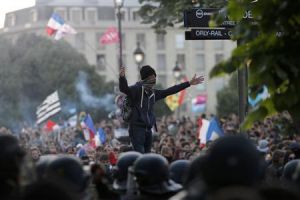The statistics regarding deaths in police custody in Malaysia is a leaf out of the macabre: 156 persons died in police custody between 2000 and February 2011,1 and it has been reported that there were at least six such deaths in 2012,2 with this being the fifth one in 2013.3 This data is alarming, as it points to an average of at least one death in police custody per month since 2000.
The Malaysian Bar is dismayed and saddened by the news of yet another death in police custody, involving 32-year-old N Dharmendran. He was reportedly arrested on 11 May 2013, and died on 21 May 2013 whilst in police remand at the Kuala Lumpur police contingent headquarters.
The death of N Dharmendran is tragic and inexcusable. It is yet another incident that raises serious questions about the treatment and safety of detainees in police custody, and the methods of interrogation used. It underscores the importance of the requirement for those in police custody to have immediate access to legal counsel upon arrest.
In the case of N Dharmendran’s arrest, the protocol prescribed under the Yayasan Bantuan Guaman Kebangsaan (“YBGK”) scheme, which is an initiative made possible by Prime Minister Dato’ Sri Najib Tun Abdul Razak, and supported by the Government, does not appear to have been complied with by the police. The guidelines for enforcement officers stipulate that as soon as an arrest has been made, and before the suspect is questioned, the police officer must inform the suspect’s family (or friend) of the arrest, and must also provide details of the suspect and the arrest to YBGK, who will then despatch a lawyer to offer legal representation to the arrested person.
However, we understand that YBGK did not receive any notification from the police about N Dharmendran’s arrest. We regret to note that this is the second occasion that we are aware of where YBGK was not notified of an arrest, and the detainee later died in police custody. In the first incident, 32-year-old K Nagarajan had been found dead on 24 Dec 2012 in the Dang Wangi police station lockup.
The present state of affairs has led to much public outrage and an erosion of confidence in the police. The police must be proactive in ensuring that the wrongful actions of some amongst them do not tarnish the standing of the whole force. Unless this is addressed, the police force will unfortunately remain a diminished institution in the eyes of the public.
The unabated deaths in police custody reinforce the Malaysian Bar’s repeated calls for the Government to implement the recommendation of the Royal Commission to Enhance the Operation and Management of the Royal Malaysia Police, in its report published in May 2005, for the setting up of an Independent Police Complaints and Misconduct Commission (“IPCMC”) to function as an independent and external oversight body to investigate complaints about police personnel.
It is untenable for the Government to continue to ignore the dire need for the IPCMC, in the face of continuing cases of deaths in police custody.
Read more here:
There is no need to establish the Independent Police Misconduct and Complaints Commission (IPCMC), said Minister for Governance and Integrity Paul Low. He said there is an existing channel called the Enforcement Agency Integrity Commission (EAIC) that would perform the same duties as the IPCMC.
“There is no need to form the IPCMC, we already have a channel that allows the public to lodge complaints with regard to the enforcement agencies called the EAIC,” he said. “There is lack of awareness. I believe that the only thing left to do is to educate the public on how one can lodge a complaint via the EAIC,” he added.
Meanwhile, Low also said he had brought up N Dhamendran’s case at the Cabinet meeting held yesterday. Dhamendran, 32, died in police custody on May 21. The post-mortem reported concluded that he had died of blunt force trauma and the case has been classified as murder.
The police headquarters in Bukit Aman has since established the case as murder and had set up an independent task force to investigate the issue. “We as the government, need to act on this issue urgently. I brought it up at the Cabinet meeting yesterday and the outcome was positive,” Low told a press conference.
He said Home Minister Ahmad Zahid Hamidi has agreed to cooperate and work with the relevant people. “The minister has also promised to urge the police to hasten their investigations in Dhamendran’s case,” he added. Also present at the press conference was Performance Management and Delivery Unit (Pemandu) director D Ravindran, whom Dhamendran’s family accused of harassing them.
Ravindran explained that there were no conversations hinting towards a settlement nor asking the family to disengage their lawyers.
Read more here:
Home Minister Ahmad Zahid Hamidi has welcomed suggestions to suspend policemen who were involved in allegedly murdering a detainee but does not want the morale of the police force dampened.
“That’s true but we will have to re-look at regulations so that it doesn’t de-motivate the policemen. We will have to study the entire police interrogation procedure,” he said at a press conference held at the Prisons Department headquarters here this morning.
He said this in response to criticism by two Indian leaders against the police’s decision to suspend their personnel who was involved in the alleged murder of detainee N Dharmendran.
Read more here:
















